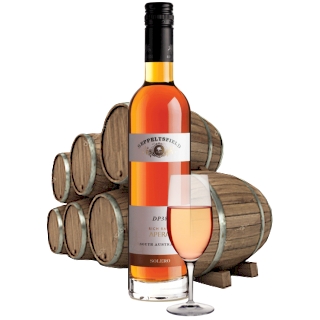


Overlooking the spectacular tidal estuary of the Derwent River at Granton, 20 km’s north of Hobart, Stefano Lubiana Wines remains a family owned and operated business, focused on producing small quantities of hand crafted, cool climate, Tasmanian wines. First planted to the Burgundy varieties of Chardonnay and Pinot Noir during the spring of 1991, the vineyard has expanded over the years to its current area of 18 hectares of closely spaced vines. Plantings also comprise of Merlot, Sauvignon Blanc, Pinot Grigio, Riesling and Nebbiolo.

Granton’s latitude of 43 degrees South enables the vineyard to enjoy full sun exposure in daylight hours. Vines are laid out on gently undulating hillside slopes within close proximity of the Derwent River. These slopes rise gradually to a point approximately 100 metres above sea level, and offer excellent cold air drainage and frost protection during the critical growing and ripening seasons of spring and autumn. The river itself provides a moderating influence on the vineyards mesoclimate. The large body of water adjacent to the site helps to moderate large changes in air temperature, cooling the site in summer and warming it during winter.
The vineyard offers a variety of soil types that are low in basic nutrients and water-retentive qualities. A thin layer of fine silty / gravelly loam predominates on the vineyards upper slopes, affording a microenvironment readily suited to red grape varieties. On the sites lower slopes, planted to white varieties, a layer of well-drained coarse gravel features prominently. Its capacity for heat accumulation encourages early vine activity and the onset of budburst during the first weeks of spring.
A mild, largely maritime climate - characterised by many clear summer and autumn days - helps to lay a solid foundation for small yields of high quality wine grapes. Typically, their small berries are rich in varietal fruit aromas and flavours, and well balanced in natural grape sugars and acids. A diversity of clonal material encourages complexity in primary fruit characteristics. Stefano Lubiana applies a number of organic principles including composting and the introduction of guinea fowls to seek out weevil beetles.

Harvesting takes place when fruit has achieved optimum flavour ripeness, and can occur anytime between early March and mid May, according to grape variety, wine style, and seasonal factors. Viticultural methods on the site are labour and capital intensive. All pruning, shoot positioning, leaf-plucking, bird netting, and fruit picking is done by hand.
Stefano Lubiana boasts a modern, state-of-the-art winery facility, capable of processing up to 300 tonnes during vintage. Steve is always looking at new innovative methods to extract maximum aroma, flavour and palate dimensions in his wines. He regularly experiments with yeasts (wild and/ or inoculated) and uses whole bunch fermentation where appropriate. The winery incorporates a temperature controlled barrel hall to prevent temperature fluctuations through varied season conditions. It also permits regulation of temperatures during fermentation thus allowing better management of the process and advancement in overall quality.
“Since he deserted the family grapeyards in the Riverland this dude’s kicked big cool climate goals in his organic vineyard on the Derwent. Cherries, raspberry and plum pump from this glass, smooth, syrupy and slick. Behind all that upholstery, there’s a rapier of taut natural acidity, and seasoned nutmeggy, cedary spice box oak. Look out, Burgundy! -Adelaide Advertiser
